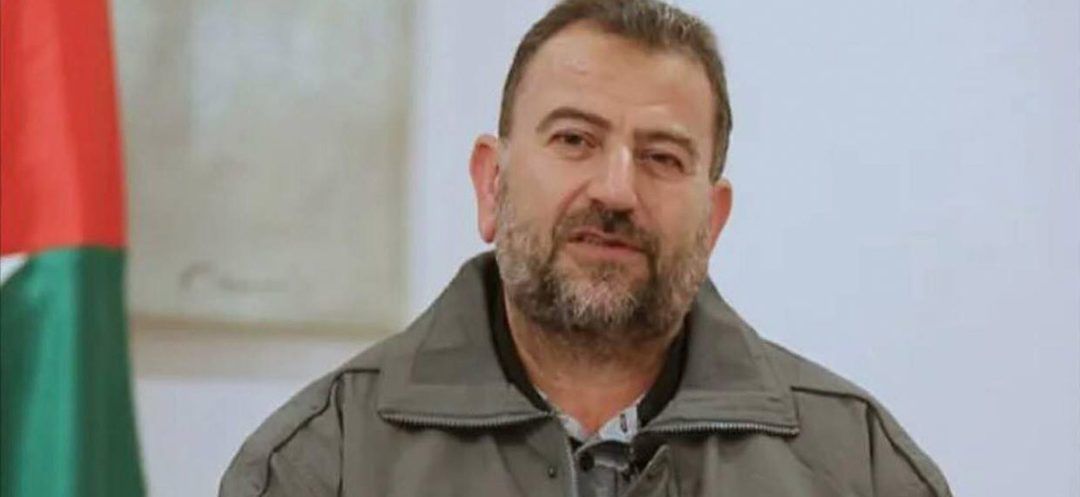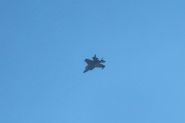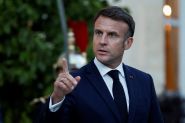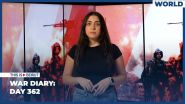- Home
- War in the Middle East
- Reactions to Saleh al-Arouri's Death in Beirut Southern Suburb Explosion

Saleh al-Arouri, a founding member of the Al-Qassam Brigades (the military wing of Hamas) and vice-chairman of the Hamas political bureau, was assassinated on Tuesday around 5:45 PM local time in an explosion in Beirut’s southern suburbs.
The Islamist Palestinian movement confirmed the death of the vice president, along with two other officials, including Samir Fandi (Abou Amer), assistant to al-Arouri and the Hamas operations chief in South Lebanon, and Azzam el-Aqraa (Abou Ammar).
The powerful explosion in the Mawad area in the southern suburbs of Beirut caused significant damage to the building housing the Hamas office, setting several cars on fire.
Israeli media reports suggested that the explosion was a drone attack by the Israeli army. One strike targeted the apartment where Palestinian officials were gathered, and another targeted Saleh al-Arouri’s car, parked at the base of the building.
Unconfirmed preliminary reports indicated 6 deaths and 11 injuries by 7:30 PM.
Civil defense worked to extinguish the fire and transport the injured. According to correspondents from This is Beirut and Ici Beyrouth present at the scene, Hezbollah security personnel are currently deployed in the neighborhood and the targeted building.
Immediately after the explosion, Israeli aircraft flew over Beirut, the southern suburbs and Khaldeh, heading towards Saida. The planes also flew at low altitude over Tripoli.
According to Israeli media, Saleh al-Arouri was scheduled to meet with Hezbollah Secretary-General Hassan Nasrallah on Wednesday. Nasrallah is set to deliver a speech on Wednesday commemorating the anniversary of Qassem Suleimani’s death, as confirmed by the press office of the pro-Iranian group.
According to some sources, a Palestinian faction meeting was taking place in the targeted apartment.
Caretaker Prime Minister Najib Mikati condemned the explosion as “a new Israeli act aimed at dragging Lebanon into a new phase of confrontations after the continuous daily attacks in the South.”
He emphasized Lebanon’s commitment to respecting international decisions, especially UN Security Council Resolution 1701. Mikati also stated that the war decision was in Israel’s hands, and he discussed the explosion’s details and circumstances with relevant military and security leaders.
Mikati assigned the caretaker Minister of Foreign Affairs, Abdallah Bou Habib, the responsibility of filing a complaint with the United Nations Security Council against Israel for violating sovereignty concerning the attack on the southern suburbs of Beirut, as well as for all other Israeli violations.
In doing so, Bou Habib directed Lebanon's delegate to the United Nations in New York, Hadi Hashem, and the Responsible for Affairs of the Lebanese Embassy in Washington, Wael Hashem, to undertake the necessary steps. Lebanon intends to vehemently protest this grave Israeli aggression aimed at dragging Lebanon and the region into a broader escalation, and it demands condemnation of Israel.
In another response, Israeli Prime Minister Benjamin Netanyahu’s advisor told MSNBC that Israel did not claim responsibility for the Beirut attack, clarifying that it was not aimed at the Lebanese government or Hezbollah. However, the Israeli Prime Minister’s office announced that Netanyahu instructed ministers not to comment on Saleh al-Arouri’s assassination.
Nonetheless, an anonymous US Defense official informed the Washington Post that the Israeli military was responsible for the attack and that an assessment was ongoing to confirm al-Arouri’s death.
Israeli media suggested that Hezbollah’s response to the strike in the southern suburbs would initiate a new phase of the conflict. Israeli officials declared that “al-Arouri’s assassination was a high-quality operation, and the fate of all Hamas leaders is death.”
Ezzat al-Richq, member of Hamas’ political bureau, affirmed that Saleh al-Arouri’s assassination would not affect “the continuation of the resistance.”
The Progressive Socialist Party strongly condemned “Israel’s blatant aggression against the southern suburbs,” emphasizing the “continuing brutality of Israel perpetuating attacks in Palestine and southern Lebanon.”
Sleiman Frangieh, the leader of the Marada party, deemed the explosion a clear violation of Lebanese sovereignty and a breach of Resolution 1701.
The leadership of Fatah in Lebanon condemned the assassination of al-Arouri, pledging “to continue the struggle until victory.”
An advisor to the Supreme Leader of Iran announced that Washington and its allies must understand that the resistance factions “will respond to the assassination of al-Arouri.”
The Islamist Palestinian movement confirmed the death of the vice president, along with two other officials, including Samir Fandi (Abou Amer), assistant to al-Arouri and the Hamas operations chief in South Lebanon, and Azzam el-Aqraa (Abou Ammar).
The powerful explosion in the Mawad area in the southern suburbs of Beirut caused significant damage to the building housing the Hamas office, setting several cars on fire.
Israeli media reports suggested that the explosion was a drone attack by the Israeli army. One strike targeted the apartment where Palestinian officials were gathered, and another targeted Saleh al-Arouri’s car, parked at the base of the building.
Unconfirmed preliminary reports indicated 6 deaths and 11 injuries by 7:30 PM.
Civil defense worked to extinguish the fire and transport the injured. According to correspondents from This is Beirut and Ici Beyrouth present at the scene, Hezbollah security personnel are currently deployed in the neighborhood and the targeted building.
Immediately after the explosion, Israeli aircraft flew over Beirut, the southern suburbs and Khaldeh, heading towards Saida. The planes also flew at low altitude over Tripoli.
According to Israeli media, Saleh al-Arouri was scheduled to meet with Hezbollah Secretary-General Hassan Nasrallah on Wednesday. Nasrallah is set to deliver a speech on Wednesday commemorating the anniversary of Qassem Suleimani’s death, as confirmed by the press office of the pro-Iranian group.
According to some sources, a Palestinian faction meeting was taking place in the targeted apartment.
Caretaker Prime Minister Najib Mikati condemned the explosion as “a new Israeli act aimed at dragging Lebanon into a new phase of confrontations after the continuous daily attacks in the South.”
He emphasized Lebanon’s commitment to respecting international decisions, especially UN Security Council Resolution 1701. Mikati also stated that the war decision was in Israel’s hands, and he discussed the explosion’s details and circumstances with relevant military and security leaders.
Mikati assigned the caretaker Minister of Foreign Affairs, Abdallah Bou Habib, the responsibility of filing a complaint with the United Nations Security Council against Israel for violating sovereignty concerning the attack on the southern suburbs of Beirut, as well as for all other Israeli violations.
In doing so, Bou Habib directed Lebanon's delegate to the United Nations in New York, Hadi Hashem, and the Responsible for Affairs of the Lebanese Embassy in Washington, Wael Hashem, to undertake the necessary steps. Lebanon intends to vehemently protest this grave Israeli aggression aimed at dragging Lebanon and the region into a broader escalation, and it demands condemnation of Israel.
In another response, Israeli Prime Minister Benjamin Netanyahu’s advisor told MSNBC that Israel did not claim responsibility for the Beirut attack, clarifying that it was not aimed at the Lebanese government or Hezbollah. However, the Israeli Prime Minister’s office announced that Netanyahu instructed ministers not to comment on Saleh al-Arouri’s assassination.
Nonetheless, an anonymous US Defense official informed the Washington Post that the Israeli military was responsible for the attack and that an assessment was ongoing to confirm al-Arouri’s death.
Israeli media suggested that Hezbollah’s response to the strike in the southern suburbs would initiate a new phase of the conflict. Israeli officials declared that “al-Arouri’s assassination was a high-quality operation, and the fate of all Hamas leaders is death.”
Ezzat al-Richq, member of Hamas’ political bureau, affirmed that Saleh al-Arouri’s assassination would not affect “the continuation of the resistance.”
The Progressive Socialist Party strongly condemned “Israel’s blatant aggression against the southern suburbs,” emphasizing the “continuing brutality of Israel perpetuating attacks in Palestine and southern Lebanon.”
Sleiman Frangieh, the leader of the Marada party, deemed the explosion a clear violation of Lebanese sovereignty and a breach of Resolution 1701.
The leadership of Fatah in Lebanon condemned the assassination of al-Arouri, pledging “to continue the struggle until victory.”
An advisor to the Supreme Leader of Iran announced that Washington and its allies must understand that the resistance factions “will respond to the assassination of al-Arouri.”
Read more



Comments